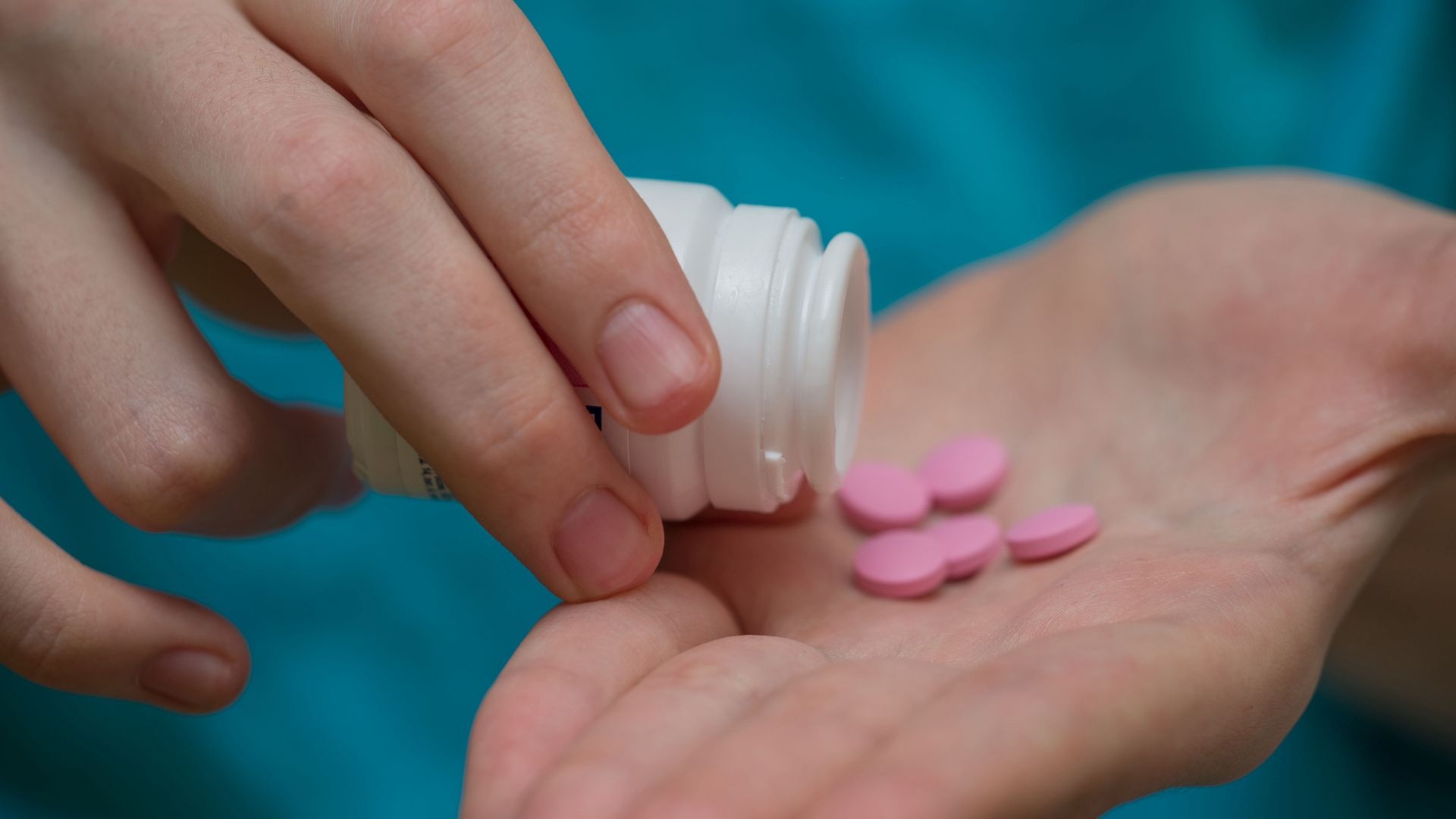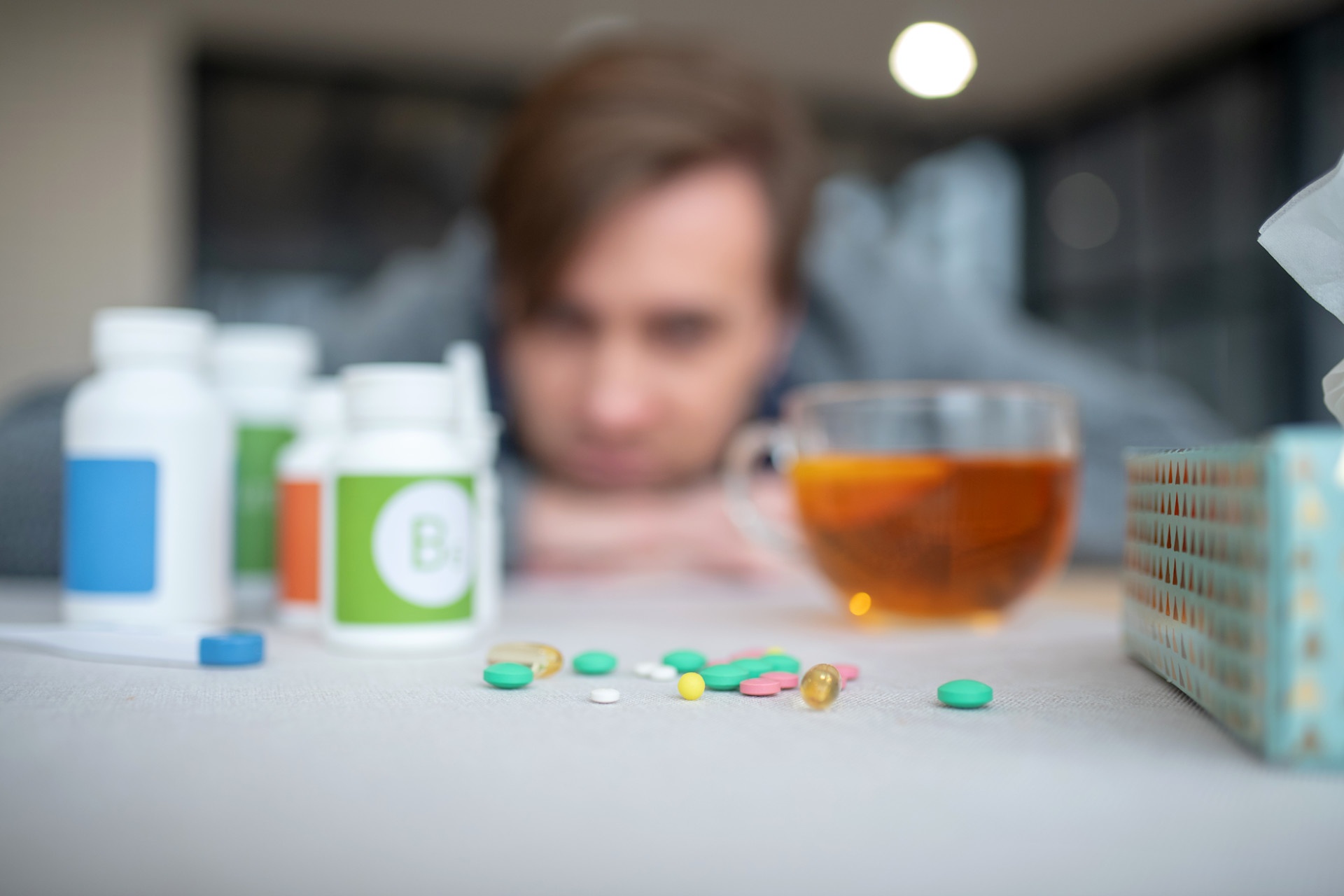Understanding Benadryl Addiction: Signs, Risks, and Recovery


Explore the signs, risks, and recovery options for Benadryl addiction. Find essential help and insights for overcoming dependency.
Benadryl, known generically as diphenhydramine, is a widely accessible over-the-counter antihistamine commonly used to alleviate allergy symptoms and as a sleep aid. While effective for these purposes, its sedative properties can lead to misuse, resulting in dependency and addiction.
At The Forge Recovery Center, we understand the complexities of Benadryl addiction and are committed to providing compassionate, personalized care to those affected. In this article, you will learn about the signs of Benadryl addiction, associated health risks, and available recovery options to support you or your loved one on the path to a healthier, addiction-free life.
What Is Benadryl Addiction?
Benadryl, known generically as diphenhydramine, is an over-the-counter antihistamine commonly used to alleviate allergy symptoms. Its sedative properties often make it a go-to choice for those seeking assistance with sleep. However, if you find yourself using Benadryl regularly to induce sleep, there's a risk of developing psychological dependence.
Psychological dependence occurs when you feel compelled to use a substance to achieve a desired mental state, such as relaxation or sleep. In the case of Benadryl, relying on it nightly can make it challenging to fall asleep without it. Over time, you might find yourself needing higher doses to achieve the same effect, which can lead to a pattern of misuse and increase the risk of addiction.
While Benadryl is readily available and generally safe when used as directed, misusing it carries significant risks. Understanding the potential for psychological dependence is crucial in preventing the development of Benadryl addiction.
Recognizing the Signs of Benadryl Addiction
Recognizing the signs of Benadryl addiction is crucial for early intervention and effective treatment. Addiction can manifest through various physical, psychological, and behavioral indicators.
Physical Indicators:
Persistent Drowsiness or Sedation: Experiencing ongoing drowsiness or sedation that extends beyond typical use may suggest dependency.
Dry Mouth, Constipation, and Urinary Retention: These side effects can become more pronounced with prolonged misuse.
Psychological Indicators:
Increased Anxiety or Agitation When Not Using Benadryl: Feeling heightened anxiety or agitation during periods without Benadryl may indicate psychological dependence.
Compulsive Cravings for the Medication: Developing strong, uncontrollable urges to consume Benadryl, even when it's not medically necessary, is a concerning sign.
Behavioral Indicators:
Consistently Exceeding Recommended Dosages: Regularly taking more than the advised amount to achieve desired effects can lead to tolerance and addiction.
Doctor Shopping or Seeking Multiple Sources to Obtain Benadryl: Attempting to acquire Benadryl from various healthcare providers or outlets to maintain supply reflects addictive behavior.
If you or someone you know exhibits these signs, it's important to seek professional help to address potential Benadryl addiction.
Are You Struggling with Mental Health or Addiction?
We Can Help. Call Us Now!
CALL: 877-839-1772
Health Risks Associated with Benadryl Addiction

Misusing Benadryl (diphenhydramine) can lead to significant health risks, both in the short and long term.
Short-Term Risks:
Impaired Coordination and Cognitive Function: Excessive intake can cause dizziness, confusion, and reduced motor skills, increasing the likelihood of accidents.
Increased Heart Rate and Potential for Arrhythmias: High doses may elevate heart rate and disrupt normal heart rhythms, posing cardiovascular dangers.
Long-Term Risks:
Memory Impairment and Increased Risk of Dementia: Chronic misuse has been linked to cognitive decline and a heightened risk of developing dementia.
Liver Dysfunction and Other Organ-Related Issues: Prolonged overuse can strain the liver and other organs, leading to lasting damage.
Risks of Combining Benadryl with Other Substances:
Enhanced Sedative Effects: Mixing Benadryl with alcohol or other depressants can amplify sedation, potentially resulting in dangerous respiratory depression.
Being aware of these risks underscores the importance of using Benadryl strictly as directed and seeking professional guidance if misuse is suspected.
Treatment and Recovery Options
Overcoming Benadryl addiction requires a comprehensive approach that addresses both physical dependence and psychological factors. At The Forge Recovery Center, we offer a range of treatment plans to support your journey to recovery.
Detoxification:
Under medical supervision, detoxification helps manage withdrawal symptoms safely, ensuring your comfort and health during the initial phase of recovery.
Rehabilitation Programs:

We provide both inpatient and outpatient programs tailored to your individual needs. Inpatient programs offer a structured environment for intensive treatment, while outpatient programs allow you to continue daily responsibilities while receiving support.
Therapeutic Interventions:
Cognitive-Behavioral Therapy (CBT): CBT helps you identify and modify underlying behaviors and thought patterns contributing to addiction.
Group Therapy and Support Groups: Engaging with peers facing similar challenges fosters a sense of community and accountability, essential for sustained recovery.
Role of Support Systems:
Involving family and friends in the recovery process provides emotional support and encouragement, enhancing your resilience and commitment to sobriety.
At The Forge Recovery Center, we are dedicated to providing personalized care to help you achieve a healthier, addiction-free life.
Are You Struggling with Mental Health or Addiction?
We Can Help. Call Us Now!
CALL: 877-839-1772
Prevention and Education
Preventing Benadryl addiction involves responsible usage, exploring alternative treatments, and increasing awareness about the risks associated with over-the-counter medication misuse.
Responsible Use of Benadryl:
Adhere to Recommended Dosages: Always follow the dosage instructions provided on the label or by your healthcare provider. Avoid exceeding the recommended amount, even if symptoms persist.
Limit Duration of Use: Benadryl is intended for short-term relief. Prolonged use can lead to tolerance and dependence. Consult a healthcare professional if symptoms continue beyond the recommended period.
Alternative Treatments:
Non-Sedative Antihistamines: Consider using non-sedating antihistamines, such as loratadine or cetirizine, which effectively manage allergy symptoms without causing drowsiness.
Natural Remedies: For sleep disturbances, explore natural options like melatonin supplements or herbal teas (e.g., chamomile) known for their calming effects. Always consult with a healthcare provider before starting any new treatment.
Educational Initiatives:
Raise Awareness: Educate yourself and others about the potential risks of misusing over-the-counter medications like Benadryl. Understanding the dangers can prevent misuse and promote safer practices.
Seek Professional Advice: If you have questions or concerns about medication use, consult a healthcare professional. They can provide personalized guidance and recommend appropriate treatments.
By following these guidelines, you can effectively manage your health while minimizing the risk of developing a dependency on medications like Benadryl.
Concerned About Benadryl Addiction? We're Here to Support Your Recovery
Recognizing and addressing Benadryl addiction is crucial for your health and well-being. If you or a loved one are struggling with dependency, seeking professional assistance is a vital step toward recovery. At The Forge Recovery Center, we offer personalized treatment plans to help you overcome addiction and reclaim a healthier, fulfilling life. Our dedicated team is here to support you every step of the way.
Are You Struggling with Mental Health or Addiction?
We Can Help. Call Us Now!
CALL: 877-839-1772





